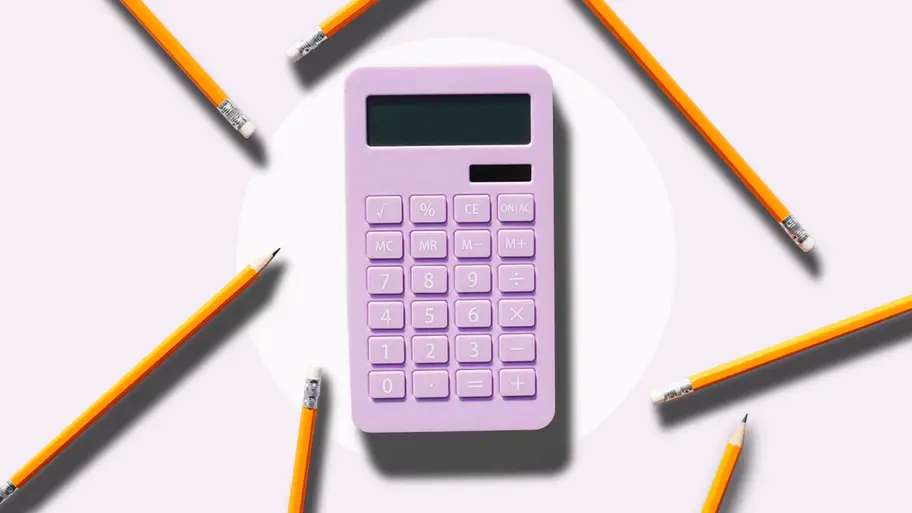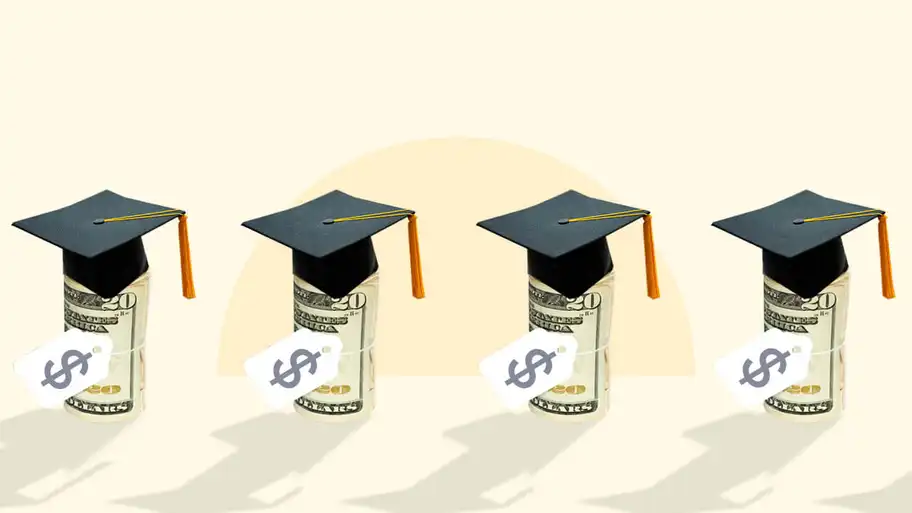Student Loan Refinancing Options for Those Struggling with Bad Credit
Navigating the world of student loans can be overwhelming, especially if you're facing bad credit. If you find yourself struggling with high interest rates and unmanageable payments, know that refinancing could be a viable solution for you. Understanding your options is crucial to alleviating financial stress and finding a path forward. Whether you're burying your head in debt or seeking relief from burdensome monthly payments, there are avenues available to help improve your situation. Let’s explore the ins and outs of student loan refinancing options tailored specifically for those grappling with bad credit.
Student Loan Refinancing Options for Those Struggling with Bad Credit
For those with bad credit, student loan refinancing might seem daunting. However, there are options available to make this process more manageable. Many lenders understand that life circumstances can affect credit scores and may offer flexible terms.
Finding the right lender is key. Some specialize in working with borrowers who have less-than-perfect credit. By comparing offerings, you can identify opportunities for lower interest rates or better repayment plans tailored to your financial situation.
Introduction
Navigating student loans can be overwhelming, especially for those struggling with bad credit. Many borrowers find themselves facing higher interest rates and limited refinancing options. This reality makes it crucial to explore all available avenues.
Understanding your choices in student loan refinancing can provide relief and financial freedom. It’s essential to know that even if you have bad credit, there are strategies and resources tailored to help you manage your debt effectively.
Understanding Student Loan Refinancing
Student loan refinancing is the process of replacing existing student loans with a new one, ideally at a lower interest rate. This can be an appealing option for those looking to manage their debt more effectively.
By refinancing, borrowers can combine multiple loans into a single payment or adjust repayment terms to better fit their financial situation. It's important to understand how this works, especially if you have bad credit and are considering your options.
Benefits of Student Loan Refinancing
Student loan refinancing can significantly ease your financial burden. One of the primary benefits is lowering interest rates. This means you could save money over time, making it easier to manage your monthly budget.
Another advantage is the flexibility in repayment options. You can choose a plan that aligns with your financial situation, whether that’s extending the term for smaller payments or opting for a shorter term to pay off debt faster. Such choices empower you to take control of your finances effectively.
Lower Interest Rates
One of the most appealing aspects of student loan refinancing is the potential for lower interest rates. If you have bad credit, this might seem like a challenge, but it’s not impossible. Many lenders offer options designed specifically for borrowers with less-than-perfect scores.
Securing a loan at a reduced rate can save you significant money over time. Lower monthly payments mean more cash in your pocket each month, allowing you to allocate funds toward essentials or savings.
Flexible Repayment Options
Flexible repayment options can make a significant difference for those managing student loans. Lenders often offer various plans that adapt to your financial situation, ensuring you stay on track without added stress.
These options might include income-driven repayment plans or extended terms. Such flexibility allows borrowers to choose a plan that fits their budget, making it easier to manage monthly payments even when unexpected expenses arise. This adaptability is especially crucial for individuals with bad credit looking for relief through refinancing.
Lender Incentives
Many lenders offer incentives to attract borrowers, especially those considering student loan refinancing with bad credit. These perks can range from cash back at closing to reduced interest rates after a certain payment period.
Incentives may also include discounts for setting up automatic payments or loyalty bonuses for existing customers. By taking advantage of these offers, you could lower your overall costs and make managing your loans more feasible in the long run.
Consolidation of Multiple Loans
Consolidating multiple student loans can simplify your financial life. Instead of juggling several payments each month, you'll have just one payment to manage. This can reduce stress and make budgeting easier.
With consolidation, you may also secure a lower interest rate or better repayment terms. However, it’s essential to understand how this affects your overall loan balance and any benefits tied to individual loans. Make sure to weigh the pros and cons before making a decision on consolidation options.
Factors to Consider Before Refinancing
Before diving into student loan refinancing, consider your credit score. Many lenders have specific requirements that can limit options for those with bad credit. Understanding where you stand will help you evaluate potential lenders effectively.
Another crucial factor is the total cost of refinancing. Look beyond just interest rates; examine fees and terms associated with the new loan. This will ensure that you're making a financially sound decision rather than simply focusing on lower monthly payments.
Credit Score Requirements
When considering student loan refinancing bad credit, credit score requirements can be a crucial factor. Lenders typically look for scores in the range of 650 or higher. However, some may still offer options to those with lower scores.
It's essential to understand that each lender has different criteria. Some might prioritize income and employment stability over your credit score. This opens doors for borrowers who have struggled but are on the path to financial recovery.
Determining Worthiness of Refinancing with Bad Credit
Refinancing student loans with bad credit can be challenging, but it’s not impossible. Start by assessing your current financial situation. Look at your income, expenses, and existing debt. This will help you determine if refinancing is a viable option.
Next, consider the potential savings from lower interest rates or better terms. If these benefits outweigh any risks associated with your credit score, it may be worth pursuing refinancing despite past financial struggles.
Strategies for Refinancing with Bad Credit
Refinancing with bad credit can feel daunting, but there are effective strategies to improve your chances. One of the best approaches is applying with a cosigner who has good credit. This can enhance your application and potentially secure better rates.
Additionally, focus on improving your credit score before refinancing. Pay down existing debts and ensure bills are paid on time. Shopping around for lenders also helps; some may offer more favorable terms for those with less-than-stellar credit histories.
Applying with a Cosigner
Applying with a cosigner can significantly improve your chances of securing student loan refinancing, especially if you have bad credit. A cosigner is someone with better credit who agrees to take responsibility for the loan alongside you. This added assurance makes lenders more willing to offer favorable terms.
When choosing a cosigner, consider someone reliable and financially stable. Their good credit score can help unlock lower interest rates and improved repayment options, making it an attractive choice for those struggling with their own credit history.
Tips to Improve Your Credit Score
Improving your credit score is crucial for better financing options. Start by paying your bills on time, as timely payments significantly impact your score. Keep an eye on your credit utilization ratio; aim to use less than 30% of your available credit.
Consider checking your credit report regularly to catch any errors or fraudulent activity. Dispute inaccuracies promptly, and don’t open too many new accounts at once, as this can lower your score temporarily. Small changes can lead to meaningful improvements over time.
Shopping Around for Lenders
When it comes to student loan refinancing for bad credit, finding the right lender is crucial. Take your time and explore various options. Each lender may have different criteria and offers that can significantly impact your overall repayment plan.
Don’t settle for the first offer you receive. Compare interest rates, fees, and terms from multiple lenders. Online tools make this process easier than ever. A little research can lead to better rates or more favorable conditions tailored to your financial situation.
Enhancing Cash Flow
Improving cash flow can make a significant difference when managing student loans. Start by creating a detailed budget to track your income and expenses. Identify areas where you can cut back, such as dining out or subscription services.
Consider finding additional sources of income too. A part-time job or freelance work could boost your earnings, providing extra funds for loan payments. Even small changes in spending habits can lead to better financial health over time, easing the burden of student debt.
Exploring Alternatives to Refinancing
If refinancing isn’t the right path for you, consider alternatives. Income-driven repayment plans can lower your monthly payments based on your earnings. This option helps ease financial strain without altering loan terms.
Another approach is seeking loan forgiveness programs if eligible. Programs like Public Service Loan Forgiveness can wipe out loans after a set number of qualifying payments. Research options that align with your situation and may offer relief while managing student debt effectively.
Conclusion
Navigating the world of student loan refinancing with bad credit can be challenging. However, there are options available to help ease your financial burden. By understanding your choices and taking proactive steps, you can improve your situation. Whether that means working on your credit score or considering a cosigner, each step brings you closer to better rates and terms.
Don't hesitate to explore alternatives if traditional refinancing isn't an option for you right now. There’s always a path forward tailored to your unique circumstances. Remember, taking informed actions today lays the groundwork for improved financial health tomorrow. Seek guidance, stay determined, and keep pushing toward a more manageable repayment strategy.












.png)

 English (CA) ·
English (CA) ·  English (US) ·
English (US) ·  Spanish (MX) ·
Spanish (MX) ·